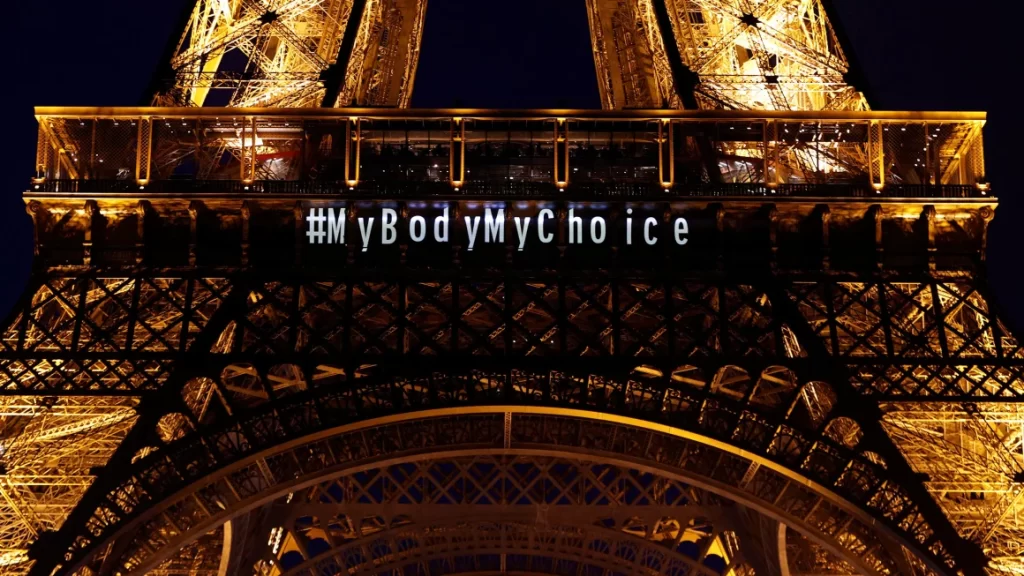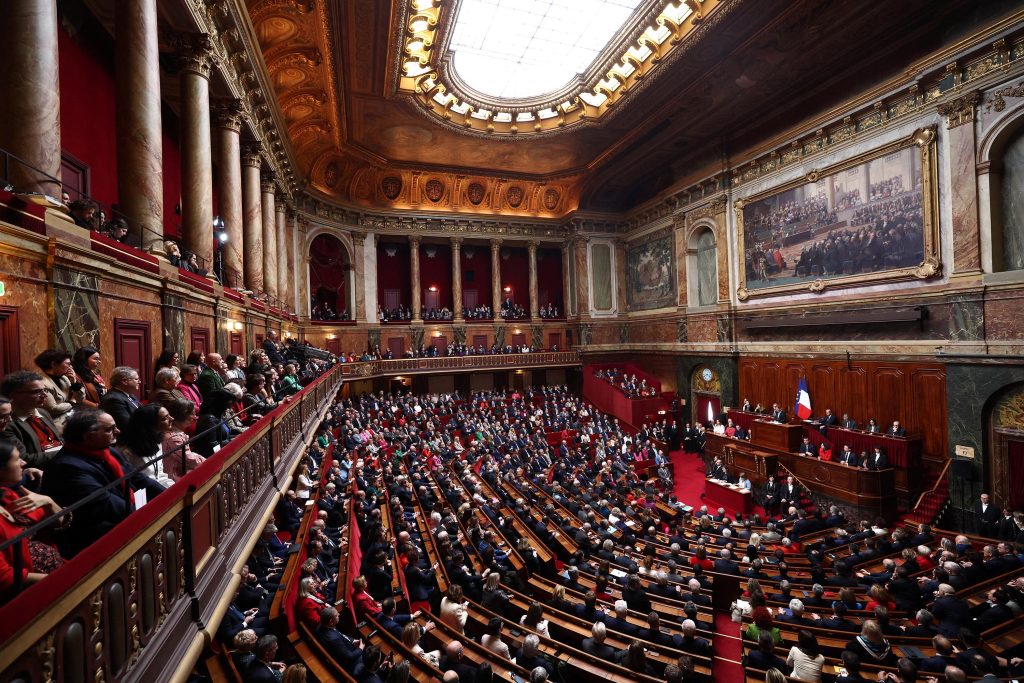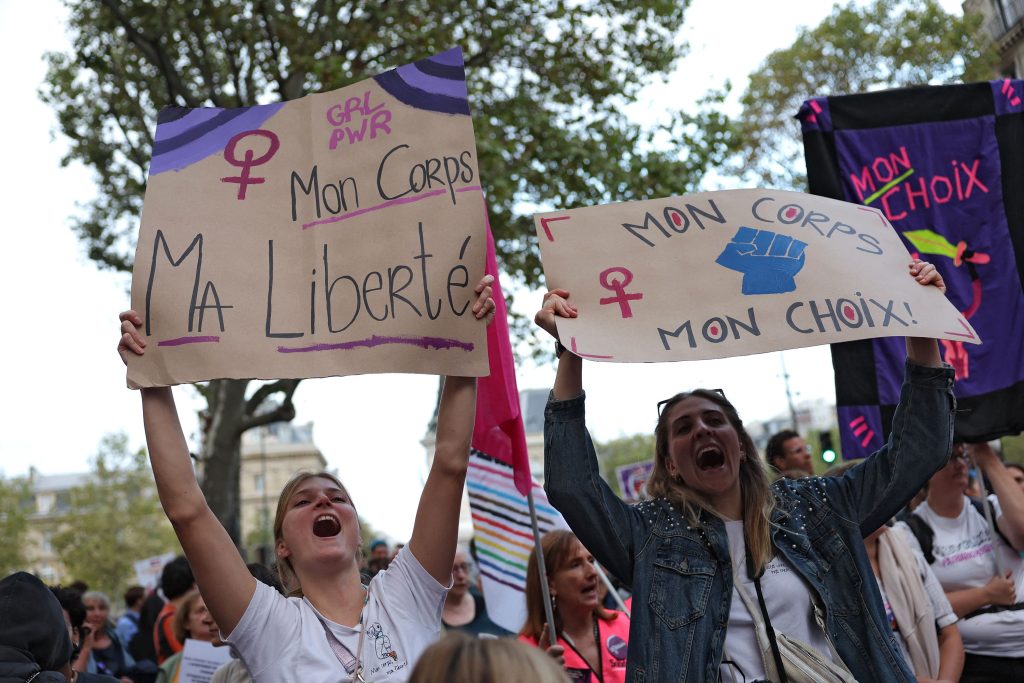News
America’s Shifting Image: A Global Perspective on Recent Developments
In the ever-evolving landscape of global perceptions, the United States of America, once a beacon of democracy and a trendsetter in various realms, is experiencing a noticeable shift in how it is viewed on the international stage. The recent overturning of Roe v. Wade by the US Supreme Court has become a turning point, altering how other nations perceive America and prompting some to reassess the nation as a model to emulate. Let’s find out with nowglas.

The repercussions of the Roe v. Wade decision have rippled across borders, with French Senator Laurence Rossignol describing it as “an electric shock.” As the vice president of the women’s rights delegation of the senate, Rossignol emphasized that the decision transformed the fight for the constitutionalization of abortion, elevating it from the domain of underground militant feminist groups.
This pivotal moment coincided with a routine gynecological appointment in Paris, where the contrast in attitudes towards America became evident. The excitement about France becoming the first country to include abortion rights in its constitution was met with a different reaction when the conversation shifted to the United States. A doctor, once enamored with the idea of immigrating to America, expressed a change in sentiment, saying, “When I was young, it was my dream to immigrate to America. Now? Not so much.” This sentiment reflects a broader shift in how America is perceived globally.
This departure from historical admiration for the US Constitution, extolled by figures like Alexis De Tocqueville, marks a significant change in the global narrative. The US Constitution, once considered a symbol of enlightened modern democracy, is now being scrutinized in the light of recent events, prompting questions about the adaptability of America’s constitutional framework.

The election of Barack Obama in 2008 was a moment of awe and envy for many around the world. America, often seen as a bastion of progressiveness, became a source of inspiration. The #MeToo movement and protests in solidarity with Black Lives Matter further reinforced America’s image as a catalyst for social change. However, the recent challenges to reproductive rights and the perceived erosion of certain constitutional principles have triggered a reassessment of America’s global influence.
When it comes to women’s rights, the perception of America’s role is more nuanced. While France legalized abortion in 1975, years after the United States, milestones like allowing women to open their own checking accounts occurred earlier in France. The recent constitutional move in France to solidify abortion rights reflects a progressive stance that contrasts with the challenges to reproductive rights in parts of the United States.
The difference in approaches to constitutional changes is also notable. France’s unified Congrès, voting on constitutional changes, has been a relatively frequent occurrence since 1958. In contrast, the US has seen fewer changes over its longer history, leading to questions about the adaptability of its constitutional framework in a rapidly changing world.
The recent televised vote in France to include abortion rights in the constitution was emotionally charged, highlighting the significance of the moment. Statements like “Liberté, égalité, fraternité. Et vous m’autoriserez à ajouter, sororité” (Liberty, Equality, Fraternity, and today, you have permitted me to add, Sorority) resonated deeply. The acknowledgment of a “moral debt” to women who suffered from illegal abortions underscored the gravity of the situation.

As the Eiffel Tower bore phrases like #MonCorpsMonChoix (my body, my choice) and “#abortolegal,” the stark contrast with a hypothetical similar proceeding in the US became apparent. The evolving narrative about America’s coolness, openness, and progressiveness now grapples with a more complex reality.
The shifting tides of global perception indicate that America‘s influence is undergoing a transformation. Once a trendsetter and admired model, the nation is now being scrutinized for its policy decisions and their impact on human rights. The challenge for America lies not just in reclaiming its cool factor but in navigating a complex global landscape where its actions are closely watched and assessed.
To understand this shift comprehensively, it’s crucial to delve into the historical context of America’s global standing. The US Constitution, crafted in the late 18th century, served as a blueprint for many emerging democracies worldwide. Alexis De Tocqueville’s seminal works in the 19th century extolled the virtues of American democracy, influencing political thought across continents. Countries as diverse as post-Spanish-American War Spain, pre-Communist China, and post-colonial African republics looked to the US Constitution as a model for shaping their governance structures.
The 20th century saw the United States ascend to unparalleled global influence. As the nation emerged victorious in two world wars and grappled with the Cold War’s ideological struggles, it became the gold standard for what an enlightened modern democracy should embody. America’s cultural exports, from pop music to iconic symbols like the Eiffel Tower, contributed to its image as a paragon of coolness and progressiveness.
The election of Barack Obama, a historic moment that resonated globally, epitomized the ideals of diversity and inclusion. The resonance of his election was felt far beyond American borders, inspiring hope and optimism for a more equitable future. However, recent events, particularly the overturning of Roe v. Wade, have cast a shadow on this once-sterling image.
The Roe v. Wade decision, a landmark ruling that legalized abortion in the United States in 1973, was considered a triumph for women’s rights. However, its recent overturning by the US Supreme Court has sparked concerns about the erosion of reproductive rights. This development has reverberated internationally, with other nations taking note of the potential implications for women’s autonomy and healthcare.
The contrasting narratives between France and the United States regarding abortion rights illustrate the evolving perceptions of America. While France takes progressive steps to constitutionalize abortion rights, America grapples with a divisive legal landscape. The fallout from the Roe v. Wade decision has positioned America as a cautionary tale for nations considering the protection and expansion of reproductive rights.
A notable aspect of this shift is the impact on America’s “cool” factor. The term “cool” has long been associated with America’s cultural influence, from Hollywood movies to innovative technologies. However, recent policy decisions have prompted a reevaluation of this coolness, particularly among younger generations globally. The association of coolness with openness, progressiveness, and inclusivity now faces challenges in the wake of perceived setbacks in areas like reproductive rights.
The significance of constitutional changes in France, such as the inclusion of abortion rights, cannot be understated. France’s unified Congrès, a mechanism for voting on constitutional changes, reflects a proactive approach to adapting governance structures to contemporary values. This stands in contrast to the United States, where constitutional changes are infrequent, leading to debates about the adaptability of a document crafted centuries ago.
The emotional resonance of the recent vote in France, with statements like “Liberté, égalité, fraternité. Et vous m’autoriserez à ajouter, sororité,” underscores the commitment to evolving notions of liberty, equality, and fraternity. The addition of “sorority” speaks to a broader acknowledgment of gender equity, aligning with contemporary ideals of inclusivity.
The Eiffel Tower, illuminated with phrases advocating for women’s rights, becomes a symbolic backdrop for France’s commitment to progressive values. Phrases like #MonCorpsMonChoix (my body, my choice) and “#abortolegal” signal a collective endorsement of reproductive autonomy and legal access to abortion. In contrast, imagining a similar proceeding in the United States becomes a challenge, highlighting the complexities of the nation’s sociopolitical landscape.
Navigating this evolving global narrative requires a nuanced understanding of America’s historical legacy, its recent policy decisions, and the perception of its constitutional framework. The challenge for America is not only to address concerns raised by international observers but also to reconcile its evolving identity with the ideals it has long championed.
Reclaiming America’s global influence involves not just policy adjustments but a concerted effort to align actions with the values that once defined its coolness. It requires a delicate balance between respecting historical principles and adapting to contemporary expectations. The global community watches closely as America grapples with its changing image, recognizing that the nation’s influence extends beyond its borders and shapes the narrative of democracy and human rights worldwide.
See more: Great Barrier Reef Faces Another Bleaching Crisis as Climate Woes Persist
